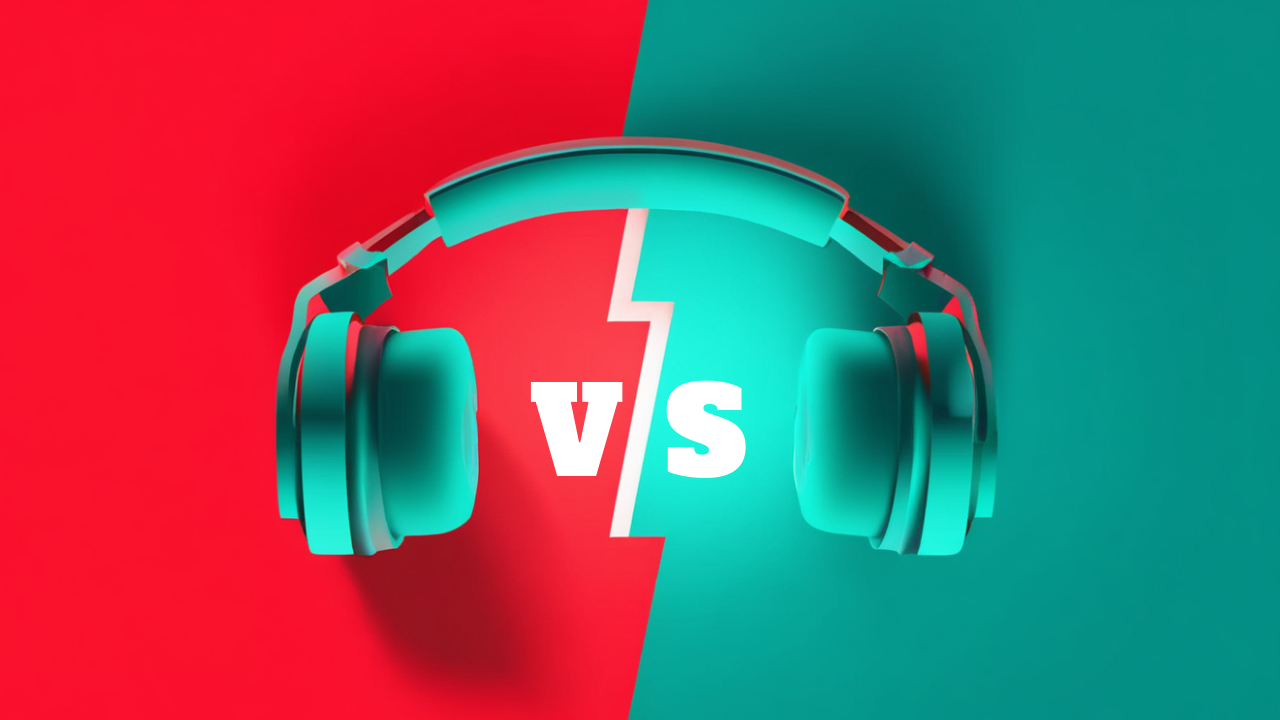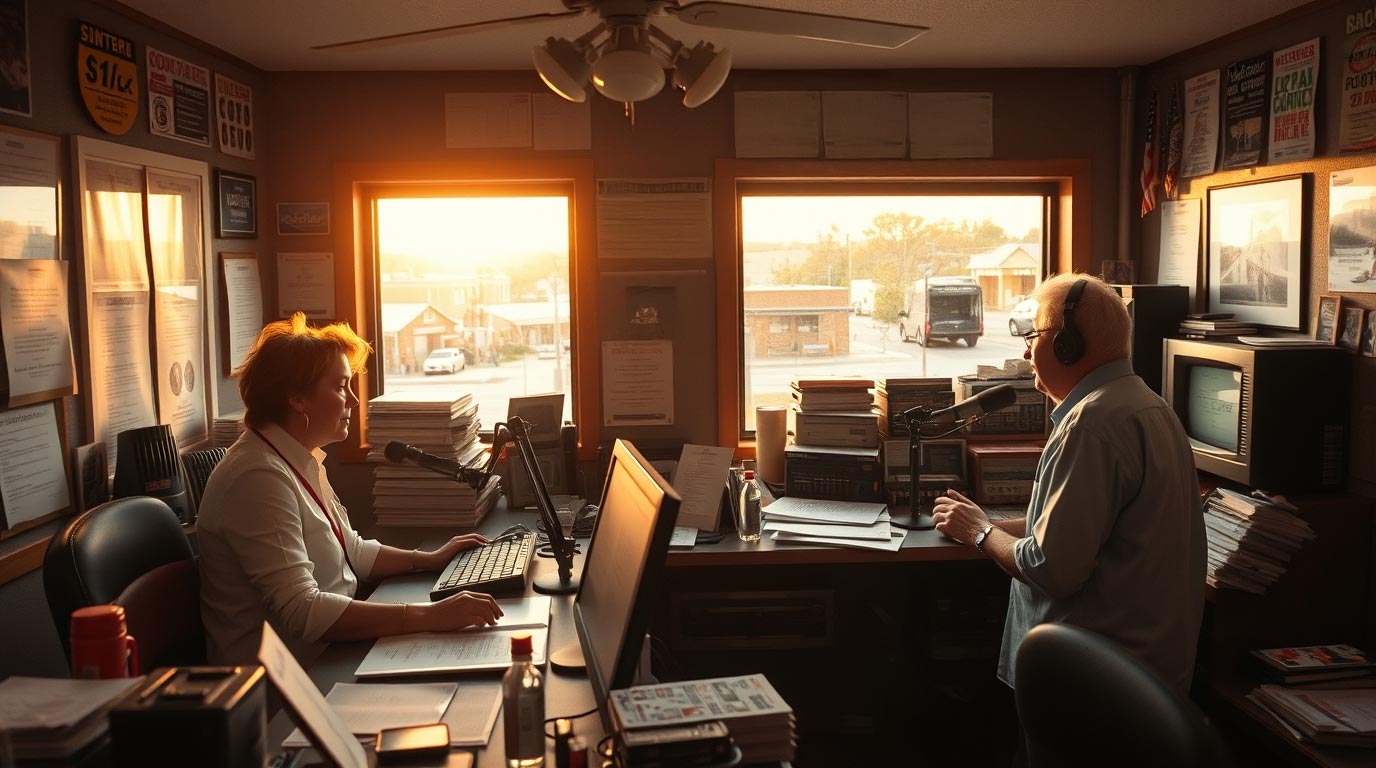Spoiler alert
If the only people who can land on your site are the ones who literally type “WXYZ-FM” into Google, you’re leaking listeners and ad dollars. Brand-name SEO is table stakes; the real payday comes when you rank before folks even realize you’re the answer they need.
Why “Brand-Name Only” SEO Isn’t Enough
Google—and every AI search assistant breathing down its neck—already knows how to serve your station when someone types “K-Rock” or “Big 102.9.” The big win is showing up when they punch in a problem statement:
- “90s country station near me”
- “Radio advertising in Cedar Falls”
- “Weekend events in Smithville”
Own those moments and you’ll surface for listeners, advertisers, and community members who didn’t even have you on their radar—yet.
The 4 Phrases Every Local Station Should Dominate
- “{music format} music in {city}”
Ex: “90s country music in Tulsa”
Action Steps
- Add the exact phrase as an H1 or H2 on your homepage and format page.
- Drop a one-liner in your footer: “K-Country 101.5—your home for 90s country music in Tulsa & Green Country.”
- Implement BroadcastService schema with genre, areaServed, and inLanguage.
- “Radio advertising in {city}”
Ratings are nice; revenue keeps the lights on.
Action Steps
- Swap your nav label to “Advertise on Radio in {City}.” Yes, the anchor text matters.
- Spin up a unique landing page for every metro you cover (even the hamlet with a single stoplight).
- Load those pages with fresh case studies, listener demos, and a taste of your rate card—Google eats real-world data for breakfast.
- “{music format} radio near me” and “radio stations near me”
“Near me” searches are up 600% in five years and fire the Map Pack first. Get in or get ghosted.
Action Steps
- Max out Google Business Profile and Apple Business Connect listings—include HD sub-channels and live-stream links.
- Keep NAP (Name-Address-Phone) identical everywhere—right down to your Alexa skill.
- On-air promo idea: “Review us on Google, DM the screenshot, win concert tickets.” Star ratings influence the Map Pack.
- “News/events/obituaries in {city}”
Your newsroom or event calendar can own this—if you post daily and tag correctly.
Action Steps
- Create hub URLs like /news-{city} and /events-{city}—short and obvious.
- Use NewsArticle, Event, and, yes, Obituary schema. (It’s a thing.)
- Publish a weekly “What’s On This Weekend” list—AI overviews crave fresh, time-sensitive roundups.
Modern Optimization Checklist (2025 Edition)
- Claim & optimize your Google Business Profile (GBP).
- Add your audio stream, full program schedule, and a shiny “Listen Live” button.
- Post something every week—contest promos, podcast drops, community happenings.
- Roll out BroadcastService schema site-wide.
- Use Yoast, Rank Math, or SEOPress to toggle it on.
- Validate monthly in Google’s Rich Results tool so nothing breaks silently.
- Win the Core Web Vitals race.
- Aim for “Largest Contentful Paint” under 1 second and “Cumulative Layout Shift” below 0.1.
- WordPress? LiteSpeed Cache will get you 80% of the way there.
- Write voice-search-friendly FAQs.
- Example: “Hey Google, what’s the best classic-rock station in Madison?”
- Answer in natural language and mark it up with FAQ schema.
- Feed the AI beasts with tight page intros.
- Open every pillar page with a 30 to 50-word summary.
- Bing Chat, Google SGE, and every other chatbot du jour use these bits for their snippets.
One-Hour Sprint for This Week
- Google “radio advertising in your city.” If you’re not in the top 3, fix that landing page and GBP today.
- Ask Alexa (or your phone), “Play {format} radio near me.” If it plays the other guys, revisit your schema and directory listings.
- Refresh every meta title and description—pack in city, format, and core content (without turning it into keyword stew).
- Publish one local news or events post every weekday. Consistency beats genius.
- Grab five fresh Google reviews—promise an on-air shout-out; listeners love hearing their name.
Do those five things and you’ll leapfrog the corporate behemoths, snag new ears, and watch the ad orders stack up—all from people who never even knew your call letters.
Next Steps
Run the four phrases through Google, Bing, and DuckDuckGo right now. Anything below position 3? That’s your homework. Implement the action steps, re-check next month, rinse, repeat. National groups already do this in major markets. Local relevance is still yours to dominate—if you start today.
Pic generated by Leonardo.AI
Jim Sherwood is a radio veteran turned digital strategist dedicated to helping radio stations thrive online through engaging websites and mobile apps. As the founder of Skyrocket Radio and host of the Better Radio Websites podcast, he shares best practices to help stations grow audiences and revenue in the digital space. With decades of experience in radio and a passion for connecting content with listeners, Jim ensures that every station—no matter its size—can make a lasting impact online.













